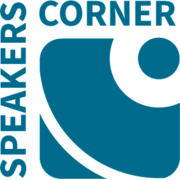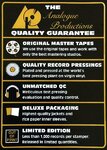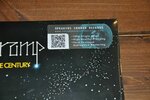Hi, my first post, been reading up till now. I'm trying to understand if an album was remastered digitally or recorded digitally initially and now available on vinyl how is the listener hearing analog? This is not a comment it's a question . I listen to mostly vinyl and do hear a definite difference from the same song as amp4 from my mac into my DAC .vs listening to it on vinyl.
Vinyl record playing a digital recording?
- Thread starter Papa Shark
- Start date
You are using an out of date browser. It may not display this or other websites correctly.
You should upgrade or use an alternative browser.
You should upgrade or use an alternative browser.
Any carefully mastered CD from a digital source will leave the best quality LP in the dust quality wise. The reason is obvious, you are feeding your quality recording into a mechanical transducer that scratches a groove into a disc and then using another mechanical transducer to trace that recording from a plastic copy of that disc.
daytona600
Well-known member
Most vinyl records since the 1980s use digital in the recording , mastering , cutting stages
Denon in 1974 produced the 1st digital recording on vinyl & 1st major label 1979 ry cooder bop till you drop
Audiophile labels produce pure analogue records ( AAA ) & these are 100% digital free
AAA ( source Analogue tape / mastered in Analogue / Analogue preview head on cutting lathe
& have big labels on outer jacket
Why are records produced in digital
Analogue requires a huge amount of skill , equipment , time & cost
 pure-analogue.com
pure-analogue.com
Records cut from a Hirez file 24/96 , 24/192 , DXD , DSD will/should sound better than a CD cut from a 16/44 red book file
Source / Recording / Mastering is very important for the best sound Rubbish in Rubbish out
Analogue records are still considered the best sounding source

.
Denon in 1974 produced the 1st digital recording on vinyl & 1st major label 1979 ry cooder bop till you drop
Audiophile labels produce pure analogue records ( AAA ) & these are 100% digital free
AAA ( source Analogue tape / mastered in Analogue / Analogue preview head on cutting lathe
& have big labels on outer jacket
Why are records produced in digital
Analogue requires a huge amount of skill , equipment , time & cost
pure-analogue | Eine Vinylschallplatte entsteht
Records cut from a Hirez file 24/96 , 24/192 , DXD , DSD will/should sound better than a CD cut from a 16/44 red book file
Source / Recording / Mastering is very important for the best sound Rubbish in Rubbish out
Analogue records are still considered the best sounding source

.

Last edited:
D
Deleted member 188516
Guest
digital recordings sound best on digital playback and analogue recordings sound best on analogue playback - correct ?
Records cut from a Hirez file 24/96 , 24/192 , DXD , DSD will/should sound better than a CD cut from a 16/44 red book file
No they won't, because the vinyl cutting process is the (very) weak link. A redbook CD is capable of perfect reproduction.
What about this:
The answer lies in the difference between analog and digital recordings. A vinyl record is an analog recording, and CDs and DVDs are digital recordings. Take a look at the graph below. Original sound is analog by definition. A digital recording takes snapshots of the analog signal at a certain rate (for CDs it is 44,100 times per second) and measures each snapshot with a certain accuracy (for CDs it is 16-bit, which means the value must be one of 65,536 possible values).
This means that, by definition, a digital recording is not capturing the complete sound wave. It is approximating it with a series of steps. Some sounds that have very quick transitions, such as a drum beat or a trumpet's tone, will be distorted because they change too quickly for the sample rate.
In your home stereo the CD or DVD player takes this digital recording and converts it to an analog signal, which is fed to your amplifier. The amplifier then raises the voltage of the signal to a level powerful enough to drive your speaker.
A vinyl record has a groove carved into it that mirrors the original sound's waveform. This means that no information is lost. The output of a record player is analog. It can be fed directly to your amplifier with no conversion.
This means that the waveforms from a vinyl recording can be much more accurate, and that can be heard in the richness of the sound. But there is a downside, any specks of dust or damage to the disc can be heard as noise or static. During quiet spots in songs this noise may be heard over the music. Digital recordings don't degrade over time, and if the digital recording contains silence, then there will be no noise.
The answer lies in the difference between analog and digital recordings. A vinyl record is an analog recording, and CDs and DVDs are digital recordings. Take a look at the graph below. Original sound is analog by definition. A digital recording takes snapshots of the analog signal at a certain rate (for CDs it is 44,100 times per second) and measures each snapshot with a certain accuracy (for CDs it is 16-bit, which means the value must be one of 65,536 possible values).
This means that, by definition, a digital recording is not capturing the complete sound wave. It is approximating it with a series of steps. Some sounds that have very quick transitions, such as a drum beat or a trumpet's tone, will be distorted because they change too quickly for the sample rate.
In your home stereo the CD or DVD player takes this digital recording and converts it to an analog signal, which is fed to your amplifier. The amplifier then raises the voltage of the signal to a level powerful enough to drive your speaker.
A vinyl record has a groove carved into it that mirrors the original sound's waveform. This means that no information is lost. The output of a record player is analog. It can be fed directly to your amplifier with no conversion.
This means that the waveforms from a vinyl recording can be much more accurate, and that can be heard in the richness of the sound. But there is a downside, any specks of dust or damage to the disc can be heard as noise or static. During quiet spots in songs this noise may be heard over the music. Digital recordings don't degrade over time, and if the digital recording contains silence, then there will be no noise.
D
Deleted member 188516
Guest
if a record is "recorded" to analogue tape (reel to reel ?) then "analogue tape playback" will be the best option for playback of that recording.
alternatively, if a record is made / recorded completely in the digital domain all on computers, then a digital playback medium will be best for such a record.
are the above statements correct ?
alternatively, if a record is made / recorded completely in the digital domain all on computers, then a digital playback medium will be best for such a record.
are the above statements correct ?
Last edited by a moderator:
daytona600
Well-known member
Visit a hifi show & every room will use vinyl , Sacd , streamers & even open reel tapes not seen a CD player in 20yearsNo they won't, because the vinyl cutting process is the (very) weak link. A redbook CD is capable of perfect reproduction.
What about this:
The answer lies in the difference between analog and digital recordings. A vinyl record is an analog recording, and CDs and DVDs are digital recordings. Take a look at the graph below. Original sound is analog by definition. A digital recording takes snapshots of the analog signal at a certain rate (for CDs it is 44,100 times per second) and measures each snapshot with a certain accuracy (for CDs it is 16-bit, which means the value must be one of 65,536 possible values).
This means that, by definition, a digital recording is not capturing the complete sound wave. It is approximating it with a series of steps. Some sounds that have very quick transitions, such as a drum beat or a trumpet's tone, will be distorted because they change too quickly for the sample rate.
In your home stereo the CD or DVD player takes this digital recording and converts it to an analog signal, which is fed to your amplifier. The amplifier then raises the voltage of the signal to a level powerful enough to drive your speaker.
A vinyl record has a groove carved into it that mirrors the original sound's waveform. This means that no information is lost. The output of a record player is analog. It can be fed directly to your amplifier with no conversion.
This means that the waveforms from a vinyl recording can be much more accurate, and that can be heard in the richness of the sound. But there is a downside, any specks of dust or damage to the disc can be heard as noise or static. During quiet spots in songs this noise may be heard over the music. Digital recordings don't degrade over time, and if the digital recording contains silence, then there will be no noise.
How Stuff Works has its limitations. A CD is capable of perfect reproduction, or at least far better than the human ear requires to hear a difference compared to perfect reproduction. The defects in vinyl reproduction are clearly obvious even with casual listening. Inner groove distortion, low bass limit to prevent jumping, vinyl roar, de-essing required to avoid sibilant distortion and compression to lift the sound above the noise.

Nyquist–Shannon sampling theorem - Wikipedia
 en.wikipedia.org
en.wikipedia.org
Having said all that, I still play all my old LPs and like the sound, especially since I bought my AT cart with a shibata stylus!
And your point is.....?Visit a hifi show & every room will use vinyl , Sacd , streamers & even open reel tapes not seen a CD player in 20years
if an record is "recorded" to analogue tape (reel to reel ?) then "analogue tape playback" will be the best option for playback of that recording.
alternatively, if a record is made / recorded completely in the digital domain all on computers, then a digital playback medium will be best for such a record.
are the above statements correct ?
Not necessarily!
D
Deleted member 188516
Guest
Not necessarily!
as i understand it, if a record is made in the digital domain, it has a single "digital to analogue process / conversion" before being passed to the amplifier.
(via the cd players dac).
however if a record is made on analogue equipment (and therefore recorded to an analogue source such as reel to reel) if this record is then transferred to cd, the original recording goes from analogue to digital then back to analogue again via the cd players dac.
surely data is then lost in this multiple conversion process ?
please tell me i'm making sense ?!
D
Deleted member 116933
Guest
Weather digital or not it boils down how it’s mastered. Technically the cd should be better. But it seems that records require a lighter touch and they are mastered for completely different leading to 2 masters. To such an existent that vinyl digital masters are being considered for release by some artists. John darko has had an interesting talk on his post cast just recently about this very topic .And often it seems those masters seem to be better due to the limitations of vinyl platform limitations don’t lead to horrible recording quite the opposite it seems.
Trev. Vinyl is perfectly capable of resolutions well outside of human hearing also. Hence the arguments. What’s technically better isn’t always. As said above in theory CD should be better but many recordings don’t get anywhere close to cd dynamic capabilities so one could argue what’s the point!? it’s not and isn’t always as clear cut. And most of the time I just don’t hear it. Which says to me just pick your poison and enjoy it. simple
Trev. Vinyl is perfectly capable of resolutions well outside of human hearing also. Hence the arguments. What’s technically better isn’t always. As said above in theory CD should be better but many recordings don’t get anywhere close to cd dynamic capabilities so one could argue what’s the point!? it’s not and isn’t always as clear cut. And most of the time I just don’t hear it. Which says to me just pick your poison and enjoy it. simple
Angle Poise-Lamp
Well-known member
abacus
Well-known member
Get a good quality USB phono pre-amp for your compute then record the vinyl to the computer and burn the file to CD, set up the vinyl and CD side by side (Use the same amp and speakers) and compare them, (Use a blind test to get rid of perception bias) you will find that there is absolutely no difference between them, as CD is well beyond anything that can be achieved with vinyl, however if you take a quality CD and transfer it to vinyl, the differences stand out as vinyl does not have the capability of a CD.
Steps in a CD do not exist to the user, (They are only there between the ADC & DAC) put an oscilloscope at the beginning of the chain (Before ADC) and another at the end (After DAC) and you will find the output is identical to the input with no steps whatsoever.
The most important part is the mastering, which requires different techniques for CD & Vinyl so as to take into account the limitations of the playback media. (Which when it comes to vinyl is quite a lot)
In the end it all comes down to personal preference, so choose whichever suits and forget how it is achieved.
Bill
Steps in a CD do not exist to the user, (They are only there between the ADC & DAC) put an oscilloscope at the beginning of the chain (Before ADC) and another at the end (After DAC) and you will find the output is identical to the input with no steps whatsoever.
The most important part is the mastering, which requires different techniques for CD & Vinyl so as to take into account the limitations of the playback media. (Which when it comes to vinyl is quite a lot)
In the end it all comes down to personal preference, so choose whichever suits and forget how it is achieved.
Bill
Jimboo
Well-known member
The golden rule : originally released as a record . Buy the original version.
Released on c.d . Buy the c.d.
Beware of re-masters (personal choice of sound quality).
Many new records , repackaged as re-mastered versions (like the awful re-printed covers) do drift away from the original versions for me in quality.
I have tried 'new' versions of records I have owned for years. They generally veer towards a more c.d light sound . My Buzzcocks remastered record is frankly dead compared to the original.
C.D generally is more successful and a better sounding product when original recordings are transferred to the format than the sound the young revivalist generation are buying for their record collections.
I have always argued that the recording is so very important to enjoyment.
180gr records bring nothing to the party , half speed , meh. Coloured versions are flogging the horse and any producer remastering the original version can add and take away in equal measure.
We oldies kept our old records and the sound is part of our DNA. C.D sounds better to me and en-masse we dumped records as the main listening source years ago. I don't enjoy the needle rumble at the start or the static between tracks so much these days. C.D brought the enjoyment of skipping tracks , pausing and programming etc. Streaming does all this and will be the norm for most future music fans.
But , yeah. If it sounds good to you.......
Released on c.d . Buy the c.d.
Beware of re-masters (personal choice of sound quality).
Many new records , repackaged as re-mastered versions (like the awful re-printed covers) do drift away from the original versions for me in quality.
I have tried 'new' versions of records I have owned for years. They generally veer towards a more c.d light sound . My Buzzcocks remastered record is frankly dead compared to the original.
C.D generally is more successful and a better sounding product when original recordings are transferred to the format than the sound the young revivalist generation are buying for their record collections.
I have always argued that the recording is so very important to enjoyment.
180gr records bring nothing to the party , half speed , meh. Coloured versions are flogging the horse and any producer remastering the original version can add and take away in equal measure.
We oldies kept our old records and the sound is part of our DNA. C.D sounds better to me and en-masse we dumped records as the main listening source years ago. I don't enjoy the needle rumble at the start or the static between tracks so much these days. C.D brought the enjoyment of skipping tracks , pausing and programming etc. Streaming does all this and will be the norm for most future music fans.
But , yeah. If it sounds good to you.......
GSV Ethics Gradient
Moderator
I did copy vinyl to CD and couldn't tell the difference, but this wasn't done blind or with the greatest of rigour - I was just trying to archive stuff I couldn't then get on CD.
daytona600
Well-known member
red book CD is brick walled @ 20khz perfect sound forever
Sacd 100khz , Analogue almost 130khz
1970s analogue Studer A80 tape machine with customized reproduction electronics* and handcrafted cutting amps that drive an Ortofon cutting head on a restored Neumann VMS-70 lathe. (*It is worth noting that independent studies have confirmed that Half Speed mastering can unveil sonic information all the way up to 122kHz!)
Sacd 100khz , Analogue almost 130khz
1970s analogue Studer A80 tape machine with customized reproduction electronics* and handcrafted cutting amps that drive an Ortofon cutting head on a restored Neumann VMS-70 lathe. (*It is worth noting that independent studies have confirmed that Half Speed mastering can unveil sonic information all the way up to 122kHz!)
D
Deleted member 188516
Guest
red book CD is brick walled @ 20khz perfect sound forever
Sacd 100khz , Analogue almost 130khz
1970s analogue Studer A80 tape machine with customized reproduction electronics* and handcrafted cutting amps that drive an Ortofon cutting head on a restored Neumann VMS-70 lathe. (*It is worth noting that independent studies have confirmed that Half Speed mastering can unveil sonic information all the way up to 122kHz!)
so is analogue better ?
(ken ishiwata seemed to think so...)
We hear in analog so I wouldn't say (better) but more true or real. As a baby boomer i certainly prefer it. Sadly most vinyl these days is from digital masters so in that case you gain only the hassle of vinyl.so is analogue better ?
(ken ishiwata seemed to think so...)
Stereo FM broadcasts must sound terrible to you. 🙂red book CD is brick walled @ 20khz perfect sound forever
Sacd 100khz , Analogue almost 130khz
1970s analogue Studer A80 tape machine with customized reproduction electronics* and handcrafted cutting amps that drive an Ortofon cutting head on a restored Neumann VMS-70 lathe. (*It is worth noting that independent studies have confirmed that Half Speed mastering can unveil sonic information all the way up to 122kHz!)
As a boomer myself I prefer music without added background noise. 🙂We hear in analog so I wouldn't say (better) but more true or real. As a baby boomer i certainly prefer it. Sadly most vinyl these days is from digital masters so in that case you gain only the hassle of vinyl.
Angle Poise-Lamp
Well-known member
That's great, except most members here probably can't hear anything above around 15KHz.(*It is worth noting that independent studies have confirmed that Half Speed mastering can unveil sonic information all the way up to 122kHz!)
True but the higher KHZ rating means that the range you can hear is more accurately produced with less roll off in the audible range.That's great, except most members here probably can't hear anything above around 15KHz.
Sound is analogue and a perfect analogue recording would be a perfect representation of the original source.
Digital is a discrete, non-continuous recording method and is only an approximation of the original analogue. The finer the discretion to better the approximation but it still an approximation (unless of course recorded from an original digital source!). Digital always loses some part of the sonic quality, by design.
That said, I have heard good digital recordings and bad analogue ones. The equipment used to playback whatever signal, has a huge impact, of course.
You pays your money and you takes your choice. Personally I listen to a lot of music as background whilst I am working. Hence, most of my listening is done via Spotify as a relatively low res digital source, playing continuously for hours and I am happy with that compromise.
Digital is a discrete, non-continuous recording method and is only an approximation of the original analogue. The finer the discretion to better the approximation but it still an approximation (unless of course recorded from an original digital source!). Digital always loses some part of the sonic quality, by design.
That said, I have heard good digital recordings and bad analogue ones. The equipment used to playback whatever signal, has a huge impact, of course.
You pays your money and you takes your choice. Personally I listen to a lot of music as background whilst I am working. Hence, most of my listening is done via Spotify as a relatively low res digital source, playing continuously for hours and I am happy with that compromise.
Similar threads
- Replies
- 12
- Views
- 2K
- Replies
- 296
- Views
- 42K

Space.com is part of Future plc, an international media group and leading digital publisher. Visit our corporate site.
© Future Publishing Limited Quay House, The Ambury, Bath BA1 1UA. All rights reserved. England and Wales company registration number 2008885.
